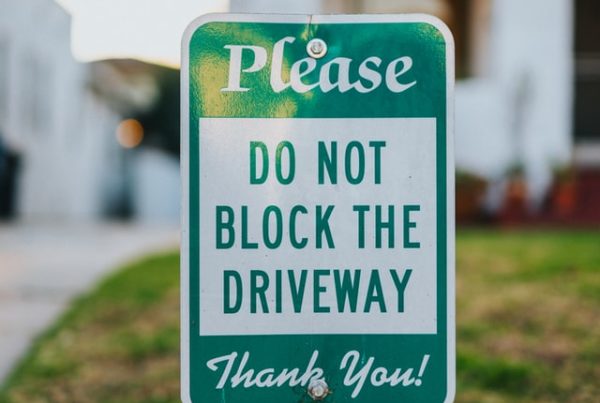Purchasing a home can be an overwhelming experience.
Especially when you receive and review your first closing disclosure or settlement statement which includes an itemized list of all the fees and expenses associated with the cost of your real estate purchase. As you may know, these costs are commonly referred to as “closing costs” and chances are, unless you are purchasing your new home or commercial property with cash alone, you will find that one of the itemized expenses is “Lender’s Title Insurance.” You may even discover that an optional expense of “Owner’s Title Insurance” is also included.
This may leave you pondering, “What is Title Insurance?” “Why is it necessary?” and “Who can explain the difference between the Lender’s Policy and the Owner’s Policy that are listed on my closing disclosure?”
To understand title insurance, we must first discuss a few legal terms and concepts:
- Title: is legal evidence of a person’s ownership interest in a piece of real estate
- Deed: a written instrument by which land is conveyed from the previous owner (the seller) to the new owner (the buyer)
- Chain of Title: the ownership history of a piece of land, from its first owner to its present one.
- Title Search: an examination of the public records to determine whether any defects or encumbrances exist in a given property’s chain of title; said search is usually conducted by a title company or a real-estate lawyer at a prospective buyer’s or mortgagee’s request.
- Title Company: a company that examines real estate titles for any encumbrances, claims of defect, or other flaws and then issues title insurance to real estate owners and lenders based on the findings of a parcel’s title search results.
Title Insurance is an insurance policy that works to protect real estate owners and lenders (the mortgage company servicing your loan) against claims of defect located in the chain of title to a specific piece of property.
Title Insurance is different from other insurance policies because unlike auto, life, and health insurance which protects against potential future risks (such as accidents, death, and illness) and is paid for with monthly or annual premiums, title insurance policies insure against events that occurred in the past due to the previous owners’ acts or omissions and can be purchased for a one-time fee (known as a premium) which is paid at the time of closing (and therefore appears on your settlement statement).
Examples of the types of risks Title Insurance works to insure you against include:
- Mechanic’s Liens previously filed and assessed against the property to be purchased
- Judgments from Unsecured Debt (credit cards)
- Consequences of Tax Sales
- Government Liens (IRS, PA Dept of Revenue)
- Estate Sales that failed to account for all heirs who maintain a claim of title ownership in the property
- Fraud in the Chain of Title
- And many more…
The answer is two-fold. As mentioned earlier in this post, unless you are purchasing your property with cash, a lender, also known as a mortgage company, is likely lending you funds to purchase your property. In Pennsylvania, the lender will require a buyer to purchase something known as “lender’s title insurance” in order to protect their investment in the property in the event of a claim which results in a monetary loss. A buyer is not required to purchase an “owner’s policy” but may wish to consider doing so after consulting with his or her real estate attorney and discussing the findings of their property’s title search.
A lender will require a borrower to purchase a “lender’s title insurance policy” in the amount of the loan. This way, insurance is in place to cover the lender’s exposure in the event of a claim which results in monetary loss.
Here is an illustration to better demonstrate how a lender’s policy works:
Sally contracts to purchase real estate from a decedent’s estate for $300,000.00 but is only borrowing $240,000.00. Her lender, issuing the $240,000 loan and paying the remaining purchase prince on her behalf, requires Sally to purchase, as part of her closing expenses, a lender’s title insurance policy in the amount of $240,000.00 because that is lender’s maximum amount of exposure at the time of purchase. Sally, being a neighbor of the decedent and feeling she knew the previous property owner for years, declines to purchase owner’s title insurance at a one-time premium rate that covers the remaining $60,000 investment she is initially contributing to purchase the property.
However, as Sally begins to make her monthly mortgage payments and begins to pay down the outstanding balance of her loan, the lender’s policy she purchased for the lender does not hold steady and provide coverage of $240,000 in the event of a claim; instead,the coverage decreases as the lender’s exposure decreases over the life of the loan.
Let’s look at what that means through the use of another illustration:
After seven years, presume Sally has reduced the outstanding balance of her mortgage loan from $240,000 to $120,000. However, someone claiming to be a missing heir of the previous owner’s estate files a claim asserting legal title to Sally’s property. At this point, the lender’s title insurance steps in to defend and/or pay the claim; but remember, at the time of the decedent’s death, the property was sold at $300,000 and this missing heir is claiming he is owed at least $240,000 to be made whole since the home was sold without his consent as his mother’s sole heir. Assume now that a court of law agrees with the heir and determines the value of his claim to Sally’s property is $240,000. The Lender’s Insurance Policy will now step in and pay $120,000 (because that is the remaining exposure of the lender) but Sally is left to figure out how to pay the claimant the remaining $120,000 he is owed, plus any additional costs that the lender incurred in defending against or responding to the claim before the court made its judgment.
What if Sally had purchased an Owner’s Insurance Policy?
If Sally had purchased an owner’s insurance policy (that remaining $60,000 of the $300,000 purchase price) her policy coverage would have grown as her equity in the home grew (i.e. with every mortgage payment, Sally’s equity interest in the home will increase, so too does her insurance policy coverage).
Thus, continuing with the illustration of the “missing heir” above, if Sally had purchased owner’s title insurance, and this claim arose when she had $180,000 worth of equity in her home, her owner’s title insurance coverage would have also been $180,000 while the lender’s had decreased to the same $120,000. As such, the total coverage of $300,000 would have been able to cover the missing heir’s $240,000 claim.
An owner’s title insurance policy protects the equity in your real estate as it grows; the coverage provided by a lender’s policy disappears as the loan balance disappears.
Still have questions?
Buying commercial or residential real estate is a fiscally significant event in everyone’s life, so why wouldn’t you want a real estate attorney to rely on and advise you through the intricate details associated with your upcoming transaction. Covalt Law and Nittany Settlement are ready to assist you with all of your real estate needs.
LEGAL DISCLAIMER:
This blog positing is made available for educational purposes only as well as to provide Central Pennsylvanians with general information and a general understanding about this area of Pennsylvania law, not to provide specific (or any) legal advice. Use of this blog does not create an Attorney-Client Relationship with the publisher, Covalt Law, or Nittany Settlement Company. This blog is for general informational purposes only. Covalt Law is a law firm in State College, Pennsylvania and some of the information within this blog relates to legal topics. Covalt Law, LLC does not offer or dispense legal advice through this blog or by e-mails directed to or from this site. By utilizing this blog, the reader agrees that the information contained herein does not constitute legal advice or other professional advice and no attorney-client relationship or other relationship is created between the reader and Covalt Law, Nittany Settlement Company, or its attorneys. Moreover, this blog is not a substitute for obtaining legal advice from a qualified attorney licensed in your state or jurisdiction. The information on this blog may be changed without notice and is not guaranteed to be complete, correct, or up-to-date. While the blog is revised on a regular basis, it may not reflect the most current legal developments or law in your jurisdiction. The opinions expressed at or through the blog are the opinions of the individual author and may not reflect the opinions of the firm or any individual attorney.
Additionally, to ensure compliance with requirements imposed by the U.S. Internal Revenue Service in Circular 230, we inform you that any tax advice contained on this site (including any links provided) is not intended or written to be used, and cannot be used, for the purpose of (i) avoiding penalties under the U.S. Internal Revenue Code or (ii) promoting, marketing, or recommending to another party any transaction or matter addressed in this communication.







